Top 5 Reasons Why Mulching Is Essential for Your Garden
- January 5, 2024
- 0 comment
Welcome to the lush world of gardening, where each leaf, petal, and stem holds a story of resilience and growth. As a passionate gardener, I’ve come to appreciate the intricate dance between nature and nurture, constantly seeking ways to enhance the well-being of my green companions. In this journey, I’ve uncovered a horticultural gem – mulching. Much like a guardian angel for your garden, mulch is the unsung hero that works tirelessly behind the scenes, ensuring your plants flourish and thrive. Join me as we unravel the top 5 reasons why mulching is not just a gardening technique but an essential ritual for cultivating a flourishing haven of greenery.

List of Top 5 Advantages of Mulching Essential for Your Garden:
The Advantages of Mulching
Mulching is a fundamental practice in landscaping that offers a myriad of benefits. Beyond the aesthetic enhancement it provides, mulching plays a crucial role in maintaining the health and vitality of plants and trees.
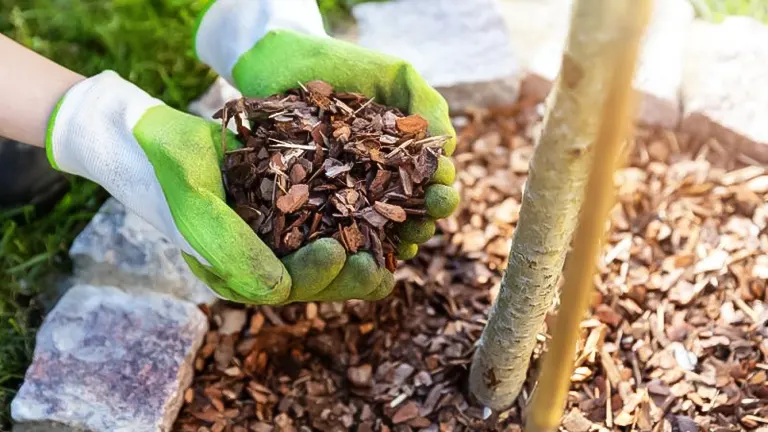
One of its primary advantages is the creation of a protective barrier around the roots, acting as a natural insulation that shields them from extreme temperatures and fluctuations in weather conditions. This insulation helps to regulate soil temperature, preventing the roots from being exposed to harsh elements.
Additionally, mulch acts as a moisture retention layer, reducing water evaporation from the soil and ensuring a more consistent and optimal hydration level for plants.
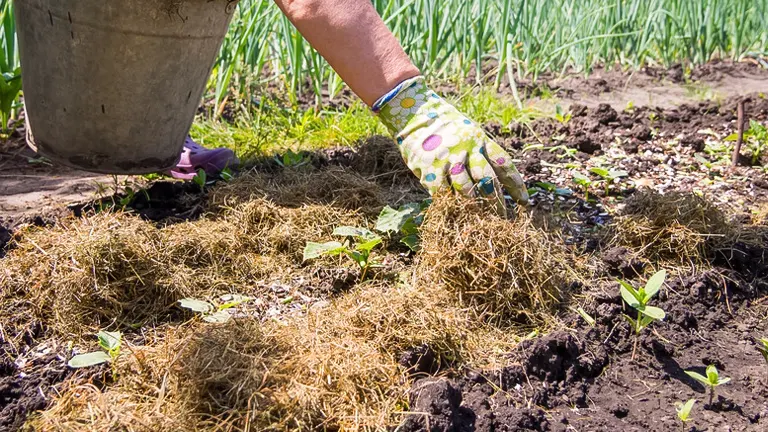
Moreover, as mulch decomposes over time, it contributes organic matter to the soil, enriching it with essential nutrients and fostering a healthier environment for plant growth.
In essence, the advantages of mulching extend far beyond mere visual appeal, making it a crucial practice for the overall well-being of landscaping.
Benefits of Mulching
Mulching offers a multitude of benefits that contribute to the overall health and vigor of plants and trees. One of the primary advantages is the formation of a protective barrier, which shields the roots from temperature extremes and environmental stressors. This protective layer also serves as an additional stratum of soil, enhancing nutrient retention and promoting optimal root development.
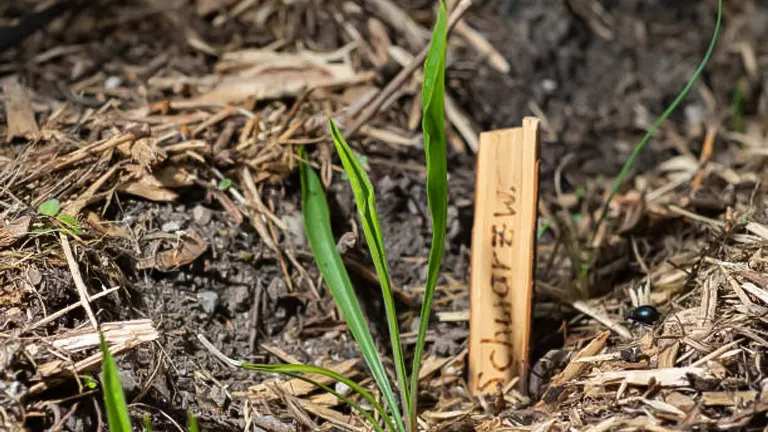
By minimizing soil erosion and compaction, mulch facilitates a more hospitable environment for plant growth. Furthermore, the moisture retention properties of mulch play a pivotal role in conserving water, reducing the frequency of irrigation, and ensuring a consistent water supply for plants.
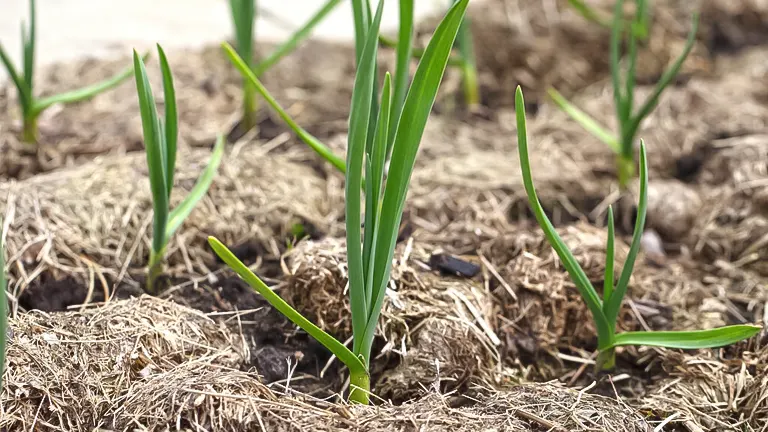
As the mulch breaks down, it enriches the soil with organic matter, fostering a nutrient-rich substrate that supports microbial activity and enhances overall soil structure. In essence, the benefits of mulching extend beyond surface-level aesthetics, contributing to the sustainability and longevity of a thriving landscape.
The additional advantages are that mulch:
- Controls Weeds: Mulching serves as an effective weed control method by creating a physical barrier that inhibits weed growth. This helps to minimize competition for nutrients, water, and sunlight, promoting the health and growth of desired plants.
- Retains Moisture: Mulch acts as a moisture retention layer by reducing water evaporation from the soil. This helps to keep the soil consistently moist, reducing the frequency of irrigation and providing a more stable and favorable environment for plant growth.
- Prevents Soil Erosion: The protective layer of mulch helps to prevent soil erosion by acting as a barrier against the impact of rainfall and wind. This is especially crucial on sloped terrain where erosion is more likely to occur, stabilizing the soil structure and preventing nutrient loss.
- Maintains Soil Nutrients: As mulch breaks down over time, it adds organic matter to the soil, enriching it with essential nutrients. This natural decomposition process enhances soil fertility, creating a nutrient-rich environment that supports the health and vitality of plants.
- Helps Control Pests: Mulch can act as a deterrent to certain pests by creating a less hospitable environment for them. Additionally, some types of mulch, like cedar or cypress, may have natural repellent properties, contributing to pest control in the landscaping.
1. Moisture Retention
Mulching plays a crucial role in moisture retention within the soil. By forming a protective barrier on the soil surface, mulch effectively reduces water evaporation, especially in hot and arid conditions. This barrier helps plants maintain consistent moisture levels, mitigating the stress caused by water scarcity and decreasing the necessity for frequent watering.
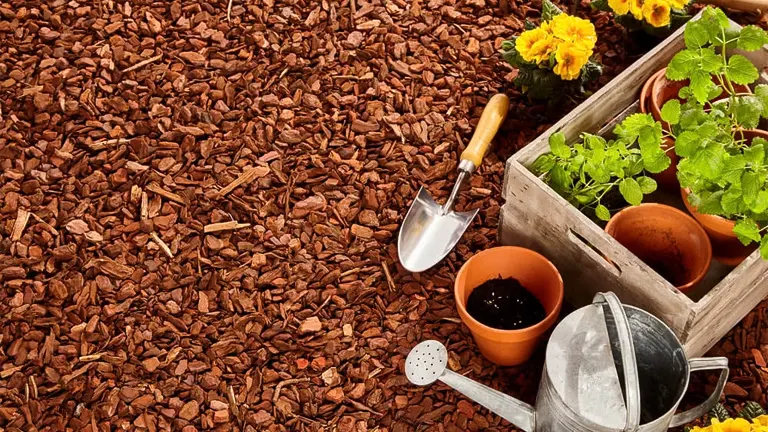
Furthermore, mulch serves as a shield against soil erosion, a common issue when rain or irrigation water directly impacts bare soil. By preventing erosion, mulching contributes to the preservation of soil structure and nutrients, fostering an environment conducive to healthy plant growth.
2. Weed Suppression
Mulch serves as a natural and effective weed suppressant by forming a physical barrier that impedes the germination and growth of weed seeds. This protective layer not only blocks sunlight, a critical element for weed development but also creates a barrier that hinders weed seeds from reaching the soil. This significantly reduces the competition between weeds and garden plants for essential resources such as nutrients, water, and sunlight.
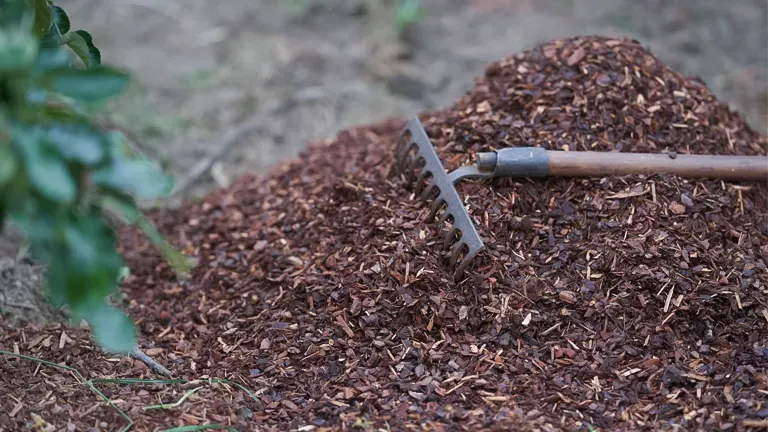
As a consequence, mulching substantially minimizes the time and effort required for manual weeding, providing a practical and sustainable solution for maintaining a weed-free garden. The weed-suppressing qualities of mulch contribute not only to the aesthetic appeal of the garden but also to the overall health and productivity of cultivated plants.
3. Temperature Regulation
Mulch serves as an insulating layer that aids in regulating soil temperature. Acting as a buffer, mulch helps to mitigate the impact of extreme temperature fluctuations. During hot weather, it keeps the soil cooler by reducing the intensity of direct sunlight on the ground, preventing overheating that can stress plant roots.
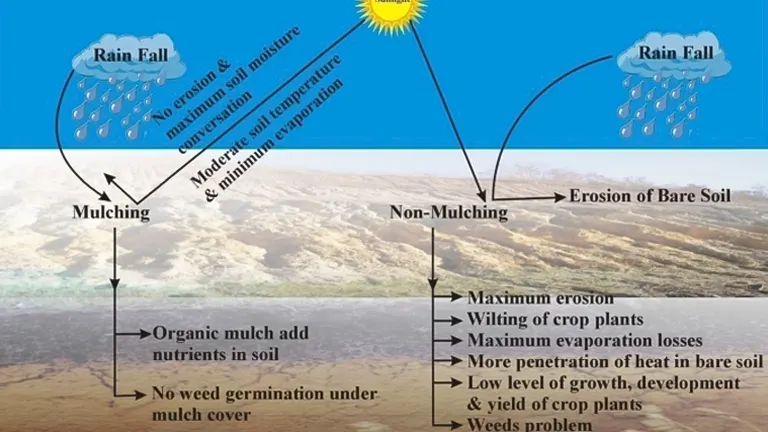
In colder conditions, mulch provides insulation, minimizing temperature extremes that can be harmful to plant roots. This temperature stability is vital for the well-being of plant roots as it fosters optimal growth and development, contributing to overall plant resilience and productivity.
4. Soil Improvement
As organic mulch decomposes over time, it enriches the soil by contributing valuable organic matter. The decomposition process enhances soil structure, fostering improved aeration and drainage. The added organic matter boosts soil fertility, providing essential nutrients for plant growth.
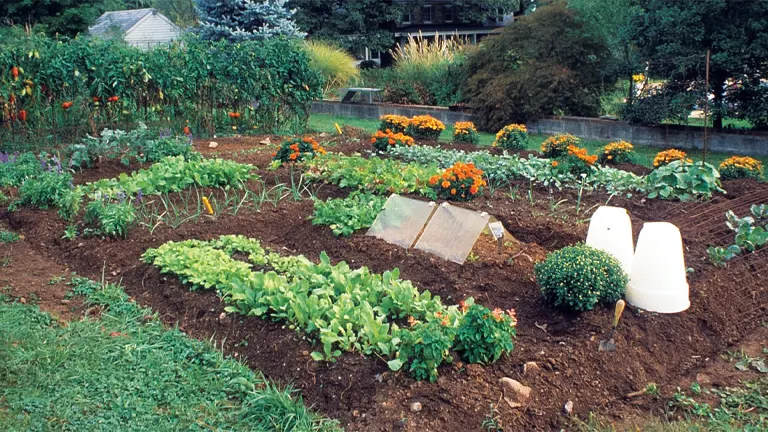
Moreover, the presence of organic mulch promotes microbial activity in the soil, creating a healthier and more balanced ecosystem. The improved soil structure and increased microbial activity create an environment that supports robust root systems, allowing plants to access nutrients more efficiently and encouraging overall plant vitality.
5. Disease Prevention
Mulch acts as a protective barrier between the soil and the lower leaves of plants, playing a crucial role in disease prevention. By preventing soil-borne diseases from splashing onto the foliage during rain or irrigation, mulch reduces the risk of fungal and bacterial infections.
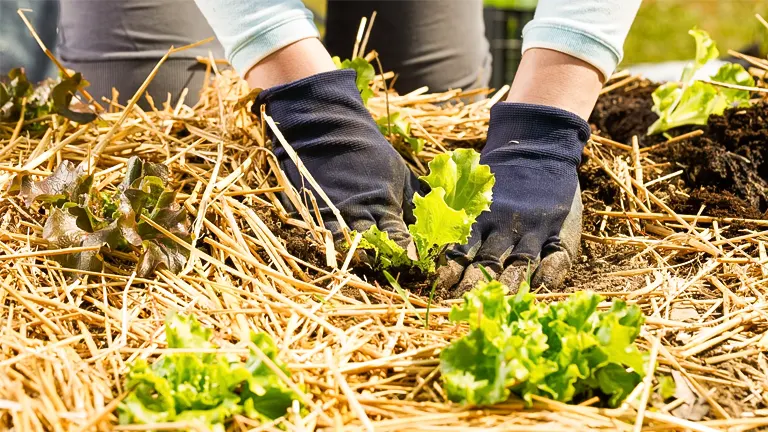
This physical barrier minimizes direct contact between the plant foliage and the potentially contaminated soil, providing an additional layer of defense against diseases that can adversely affect plant health. Disease prevention through mulching not only safeguards individual plants but also contributes to the overall health and resilience of the garden ecosystem, promoting a more sustainable and thriving gardening environment.
Mitigating Soil Erosion
Addressing soil erosion is a perpetual consideration in both commercial and residential landscaping endeavors, and mulching offers a valuable means to significantly reduce soil loss due to environmental factors. Initially, mulch plays a pivotal role in maintaining soil moisture, creating a formidable obstacle against erosion. This moisture retention feature makes it considerably more challenging for soil to erode.
Moreover, mulch serves as a crucial shield against the impact of intense rain, preventing the displacement of soil caused by heavy raindrops. Additionally, it acts as a barrier between the exposed ground and the wind, effectively safeguarding the soil from being carried away by wind erosion. In essence, mulching proves instrumental in protecting the integrity of the soil and mitigating the adverse effects of erosion induced by both water and wind forces.
Maintaining Soil Nutrients
Mulching is also a great way to efficiently create and maintain healthy nutrient levels in your soil. The material protects the nutrients from getting washed away by rain and wind.
If you are using an organic material as you mulch, then it will begin to naturally break down and release nutrients into your soil, which keeps it rich and healthy. Worms and soil microbes will help break the material down and in doing so they will benefit the soil with essential nutrients which encourages a healthy soil ecosystem.
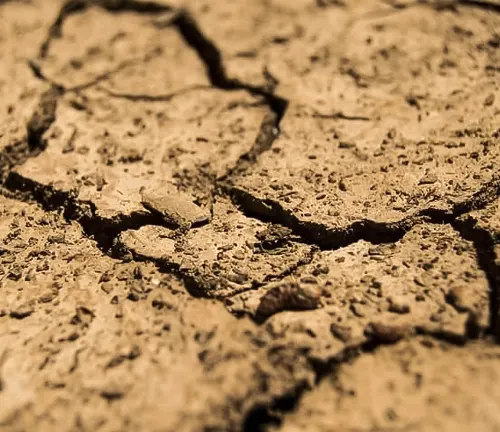
Controlling Pests
Your landscaping success will also be affected by pests and insects from time to time, and another reason why mulch is important is that it helps keep their numbers down. Certain mulches are known to be more effective pest controllers than others.
Some bark deters certain insects and not others, so that is an important consideration to keep in mind, as some mulches attract insects – ask a professional for assistance on this when you are buying mulch. Mulches with a strong fragrance are the most likely to deter insects and barks such as cedar are particularly effective.
Final Conclusion
In conclusion, mulching emerges as an indispensable element in fostering a thriving environment for the growth of trees, shrubs, and plants, making it an integral component of any comprehensive landscape maintenance strategy. Beyond its horticultural benefits, mulching also contributes to the aesthetic appeal of open spaces, serving as a visually pleasing element in landscaping design.
This practice not only enhances the overall look of outdoor areas but also offers a practical means to delineate and separate plants from buildings and other equipment. In essence, incorporating mulching into landscape planning not only supports the health and vitality of vegetation but also adds a touch of visual finesse to outdoor spaces while providing functional delineation within the landscape.
Frequently Asked Questions
- What types of materials can be used for mulching in the garden?
Mulching materials vary and can include organic options like straw, wood chips, or compost, as well as inorganic choices such as rubber or plastic mulch. - How often should I apply mulch to my garden?
Mulch should typically be replenished once or twice a year. However, this can depend on the type of mulch used, weather conditions, and the rate of decomposition. - Will mulching attract pests to my garden?
Properly applied mulch does not necessarily attract pests. In fact, it can act as a deterrent by reducing access to the soil surface, making it less hospitable for certain pests. - Can mulch help with soil improvement in my garden?
Yes, organic mulch contributes to soil improvement by breaking down over time and adding valuable organic matter, enhancing soil fertility, structure, and microbial activity. - Does mulching prevent all weeds in the garden?
While mulch significantly suppresses weed growth, it may not eliminate all weeds. Regular maintenance and occasional weeding may still be required, but at a reduced frequency. - Is mulching beneficial in both hot and cold climates?
Yes, mulching provides temperature regulation, helping to keep soil cooler in hot weather and warmer in cold weather, creating optimal conditions for plant growth. - Can mulching be used for container plants?
Absolutely, mulching is beneficial for container plants as well. It helps retain moisture, regulates soil temperature, and provides a protective layer for the roots. - Will mulching help conserve water in my garden?
Yes, one of the primary benefits of mulching is moisture retention, reducing water evaporation from the soil surface and promoting more efficient water use in the garden. - Can mulching prevent diseases in plants?
Mulching acts as a protective barrier, minimizing soil-borne diseases from splashing onto plant foliage during rain or irrigation, contributing to disease prevention. - Are there any specific considerations for mulching around trees?
When mulching around trees, avoid piling mulch against the trunk (mulch volcano), as this can lead to moisture retention against the bark, potentially causing root and trunk issues. Instead, create a mulch ring around the tree, leaving a gap near the trunk.
We’d greatly appreciate your input! Feel free to share your personal experiences and thoughts on the Top 5 Reasons Why Mulching Is Essential for Your Garden in the comments section below. Your insights have the potential to assist other gardening enthusiasts in making well-informed decisions for their own green spaces!

Edward Smith
Forestry AuthorWoodworking is about more than crafting; it's a harmonious connection with nature, mastering tools, and preserving our environment. I'm here to share my knowledge and experiences with you, forging a future where we can embrace wood's beauty and utility while safeguarding our forests' health and diversity.





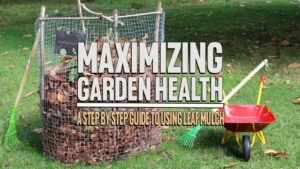
Leave your comment